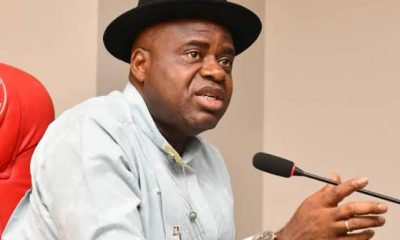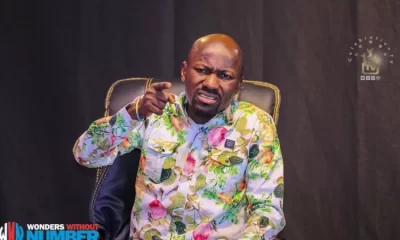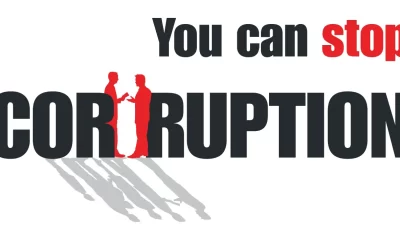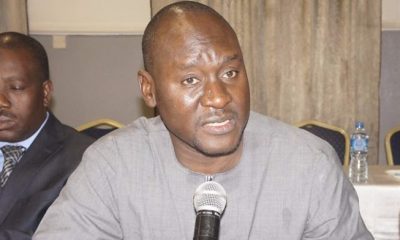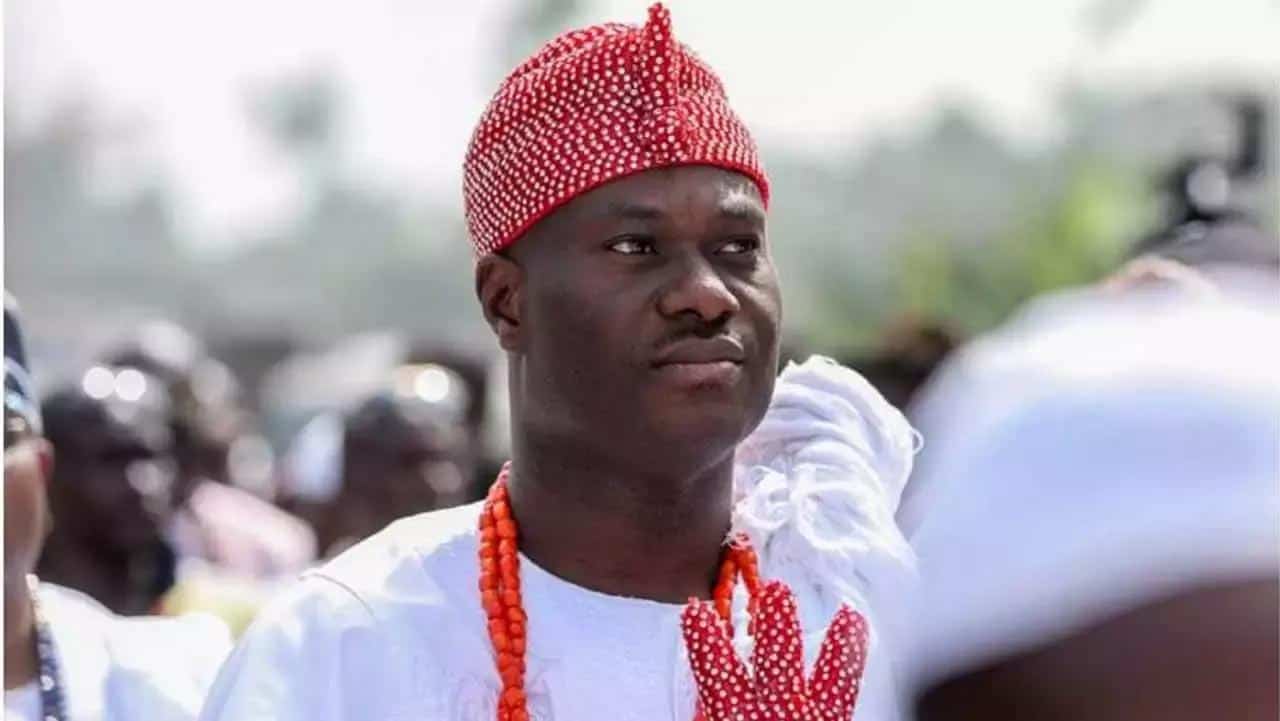Politics
Clashes Of Titans: 10 Times Nigerian Politicians’ Battled With Their Godfathers
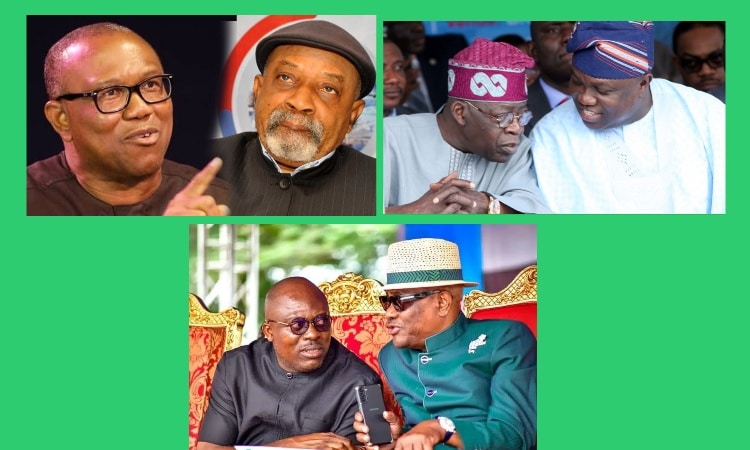
The intricate web of godfatherism has been a central element of Nigeria’s political landscape, and at times, it has unravelled in public, revealing significant conflicts between political godfathers and their proteges.
Nigeria’s political landscape has long been shaped by influential godfathers, individuals wielding immense control over the destinies of aspiring politicians. These godfathers, often seasoned and influential politicians themselves, have a significant role in moulding the political careers of their proteges.
However, there have been instances when ambitious politicians have collided head-on with their godfathers, leading to public spats that have captured the nation’s attention. In this article, we delve into memorable episodes when Nigerian politicians locked horns with their godfathers, shedding light on the underlying causes and repercussions of these showdowns.
Naija News highlights some prominent cases of Nigerian politicians who found themselves in the spotlight due to their disputes with their political mentors:
1. Bola Tinubu vs. Governor Akinwunmi Ambode:
In 2018, a significant political rift emerged between former Lagos State Governor Akinwunmi Ambode and his godfather, Bola Tinubu, the influential national leader of the All Progressives Congress (APC) party. Despite Ambode’s achievements during his tenure, including infrastructure development and urban renewal projects, Tinubu withdrew his support for Ambode’s re-election bid. This rift between the two politicians became highly publicized, revealing underlying power struggles and political dynamics within the party. Ultimately, Ambode’s bid for re-election was unsuccessful, underscoring the vulnerability of politicians who find themselves at odds with their godfathers.
2. Peter Obi vs. Chris Ngige:
Peter Obi and Chris Ngige were once political confidants in Anambra State. Ngige, the previous governor, supported Obi as his successor. However, their association deteriorated after Obi took office. Ngige accused Obi of corruption and non-compliance with his counsel, leading to Ngige’s defection from the PDP to the APC.
3. Senator Dino Melaye vs. Former Governor Yahaya Bello:
In Kogi State, the political feud between Senator Dino Melaye and former Governor Yahaya Bello showcased the contentious relationship between a godfather and his protege. Melaye, a vocal critic of Bello’s administration, accused the governor of mismanaging state resources and neglecting the welfare of the people. The disagreement between the two escalated to the point where Melaye was denied the opportunity to contest for a second term as a senator under the ruling party’s banner. This rift highlighted the potential consequences for politicians who challenge the authority of their godfathers, including the denial of party support and electoral opportunities.
4. Nyesom Wike vs. Rotimi Amaechi:
The Rivers governorship reignites the cat-and-dog relationship between Nyesom Wike and Rotimi Amaechi. Nyesom Wike and Rotimi Amaechi were once allies. However, their camaraderie disintegrated in the run-up to the 2015 general elections. Amaechi, the incumbent governor, backed Dakuku Peterside for his successor, while Wike, Amaechi’s former chief of staff, contested under the Peoples Democratic Party (PDP) banner and emerged victorious. This divergence led to public accusations, with Wike alleging corruption against Amaechi and criticizing him for neglecting the state’s welfare.
5. Godwin Obaseki vs. Adams Oshiomhole:
In their earlier political partnership, Adams Oshiomhole praised Godwin Obaseki as the mastermind of Edo State’s governance and endorsed him as his successor. Obaseki took office as governor in 2016, while Oshiomhole rose to the national chairmanship of their party, the APC.
However, their political collaboration soon unravelled after Obaseki assumed office. Initially subtle, the discord grew increasingly apparent, leading to their eventual separation.
Oshiomhole faced suspension by his local ward in Edo State, reportedly influenced by the governor, ultimately resulting in his suspension as the national chairman of the APC.
Obaseki encountered his own obstacles when he was disqualified from the APC’s gubernatorial primary due to alleged discrepancies in his academic credentials, with suspicions that Oshiomhole played a role in this decision.
Subsequently, Obaseki defected to the opposition Peoples Democratic Party (PDP) and promptly announced his re-election bid. The conflict between the two and within the APC led to various intrigues, dismissals, legal disputes, threats, and other developments.
6. Abdullahi Ganduje vs. Rabiu Kwankwaso:
Abdullahi Ganduje and Rabiu Kwankwaso shared a political alliance in Kano State. Since 2015, these two individuals have harboured a deep-seated hatred. Ganduje, who owes his political rise to Kwankwaso, served as his deputy governor for eight years and eventually succeeded him, a rare occurrence in Nigerian politics.
As anticipated, their fallout was swift, following a familiar script where political godfathers clash with their proteges after a short time in office. Ganduje effectively barred Kwankwaso from entering Kano for over three years. Even as both have left their gubernatorial positions, their frosty relationship endures with no sign of reconciliation.
7. Rochas Okorocha vs. Governor Hope Uzodinma:
In Imo State, a public feud unfolded between former Governor Rochas Okorocha and his godson, Hope Uzodinma, who succeeded him in 2019. The dispute escalated when Uzodinma ordered Okorocha’s arrest, accusing him of trespassing on government property. The conflict took a significant toll on the state’s political stability and raised questions about the influence of godfathers in Nigerian politics. This highly publicized rift shed light on the challenges faced by politicians seeking to assert their independence from their godfathers, even after assuming positions of power.
8. Aminu Tambuwal vs. Aliyu Wamakko:
Aminu Tambuwal and Aliyu Wamakko were once allies in Sokoto State’s political landscape. Wamakko, the former governor, backed Tambuwal as his successor. However, their alliance soured after Tambuwal’s inauguration. Wamakko accused Tambuwal of disrespect and non-compliance with his counsel, leading to Tambuwal’s defection from the All Progressives Congress (APC) to the People’s Democratic Party (PDP).
9. Bukola Saraki vs. Kwara State PDP leaders:
Bukola Saraki and the Kwara State PDP leaders were once close political allies. The Kwara State PDP leaders, led by the former governor of the state, Senator Shaaba Lafiagi, supported Saraki to be governor. However, the relationship between the two parties soured after Saraki’s inauguration. Saraki accused the Kwara State PDP leaders of being corrupt and trying to control him. The rift between the two parties eventually led to Saraki’s defection from the PDP to the APC, although Saraki later returned to the PDP.
10. Olusegun Mimiko vs. Adebayo Adefarati:
Olusegun Mimiko and the late Adebayo Adefarati were previously aligned in their political endeavours. Adefarati, the former governor of Ondo State, supported Mimiko’s bid for succession. However, their relationship strained after Mimiko assumed office. Adefarati alleged disrespect and disregard for his advice, causing a rift between them. This discord prompted Adefarati’s shift from the Alliance for Democracy (AD) to the People’s Democratic Party (PDP).
These historical cases reveal that the ongoing political feud between Nyesom Wike and Sim Fubara is not a novelty in Nigerian politics. It’s also evident that a pattern of defection has emerged in the highlighted instances, which could hint at a possible recurrence in the case of the Rivers State PDP politicians.
The clashes between Nigerian politicians and their godfathers exemplify the intricate power dynamics and struggles for independence within the country’s political framework. These conflicts often reveal deep-rooted tensions, including personal ambitions, ideological differences, and competition for resources and control.
While some politicians have successfully navigated these challenges, others have faced significant setbacks, including losing electoral opportunities and political relevance. As Nigeria’s political landscape continues to evolve, it remains to be seen how these conflicts and power struggles will shape the country’s future and the role of godfathers in Nigerian politics.

